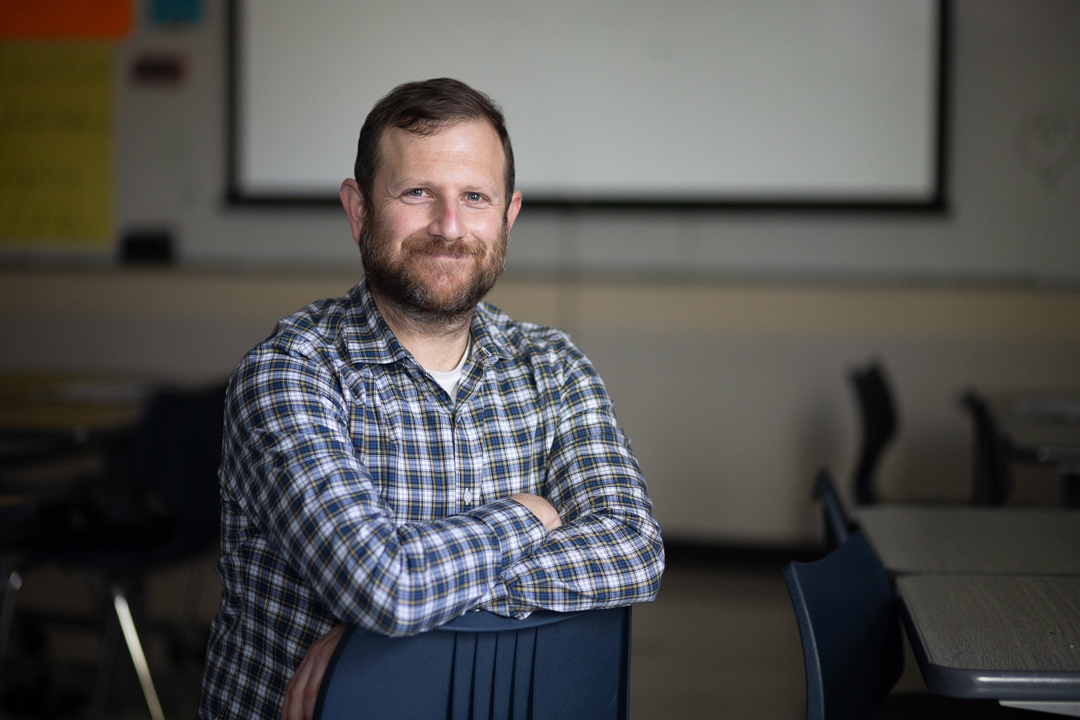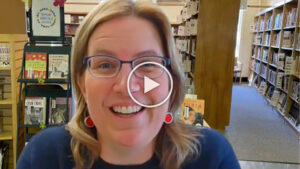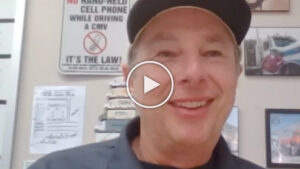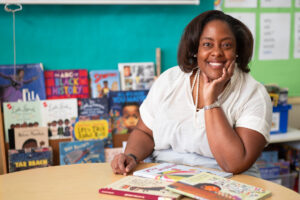I studied history at the University of Michigan, and I played music for fun. I thought, ‘Okay, I’ll graduate, and then I’ll go start a band.’ That’s what I did. We were called ‘Or, The Whale.’
I ended up moving to San Francisco and played in the band while waiting tables. It’s the kind of job where you can take a month or six weeks off to tour and then come back and work it again. It was an awesome experience.
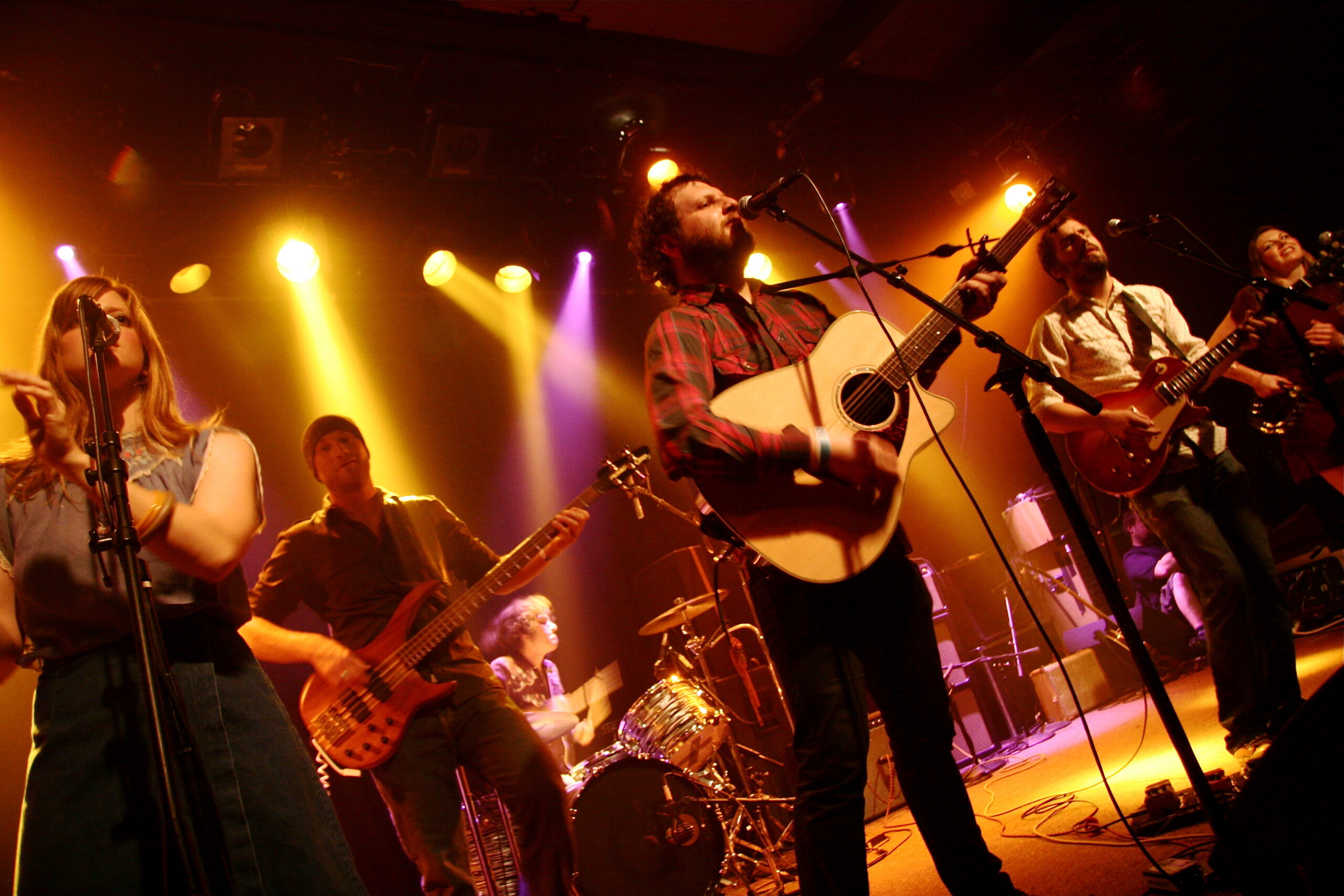
By the time I got to my late twenties, I’d met my wife and gotten married. When I turned 27, I was still playing in the band, but it felt like I was transitioning into a different part of life.
It got to the point where I didn’t want to tour and sleep on floors anymore. My friend from San Diego had become a teacher. He was moving up to the Bay Area to take a job; actually, at the school I’m at now. He said, ‘Let me take you to lunch and I will convince you that you should be a teacher.’
He told me how he got into teaching — his path. He was able to still work and go to school while getting his master’s degree and credential.
After that lunch, I decided teaching was something I should look into. The next morning, we found out that my wife was pregnant. So, I ultimately completed my student teaching with a nine month old. That was pretty intense!
But I’m really glad it happened that way. It wasn’t like I’d known I was going to teach since I was a little boy. It was very much, ‘This is cool. I’m interested in these things. Teaching could be awesome. Let’s see what happens.
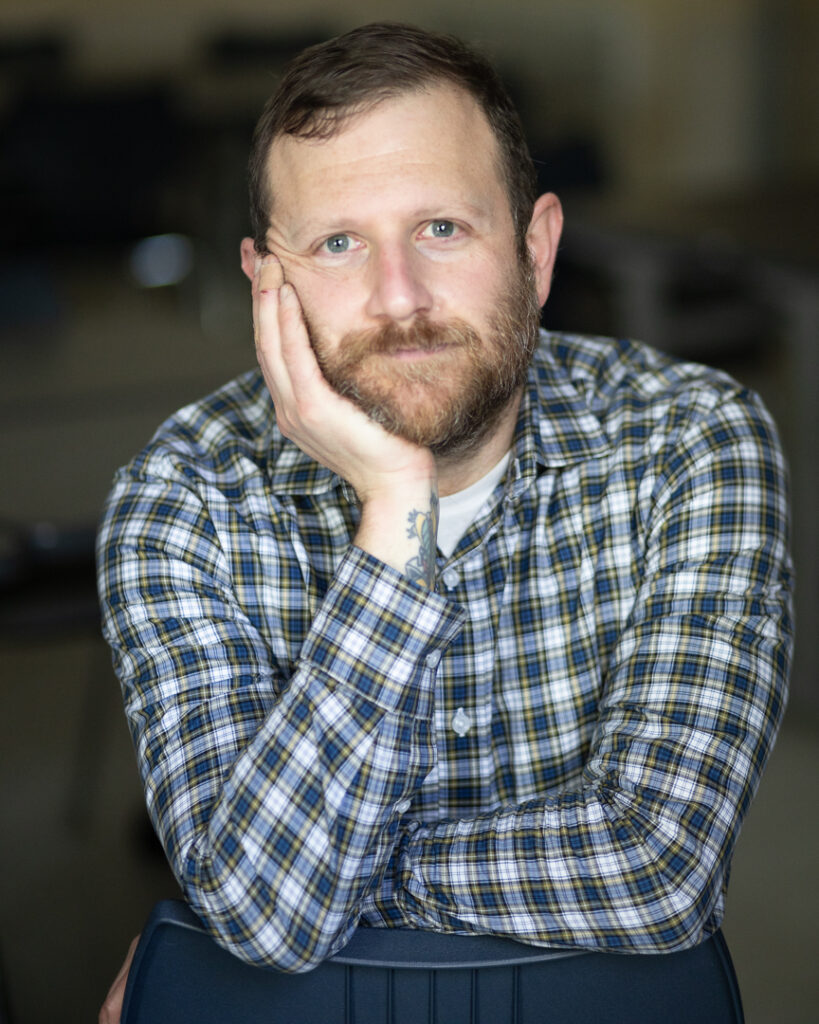
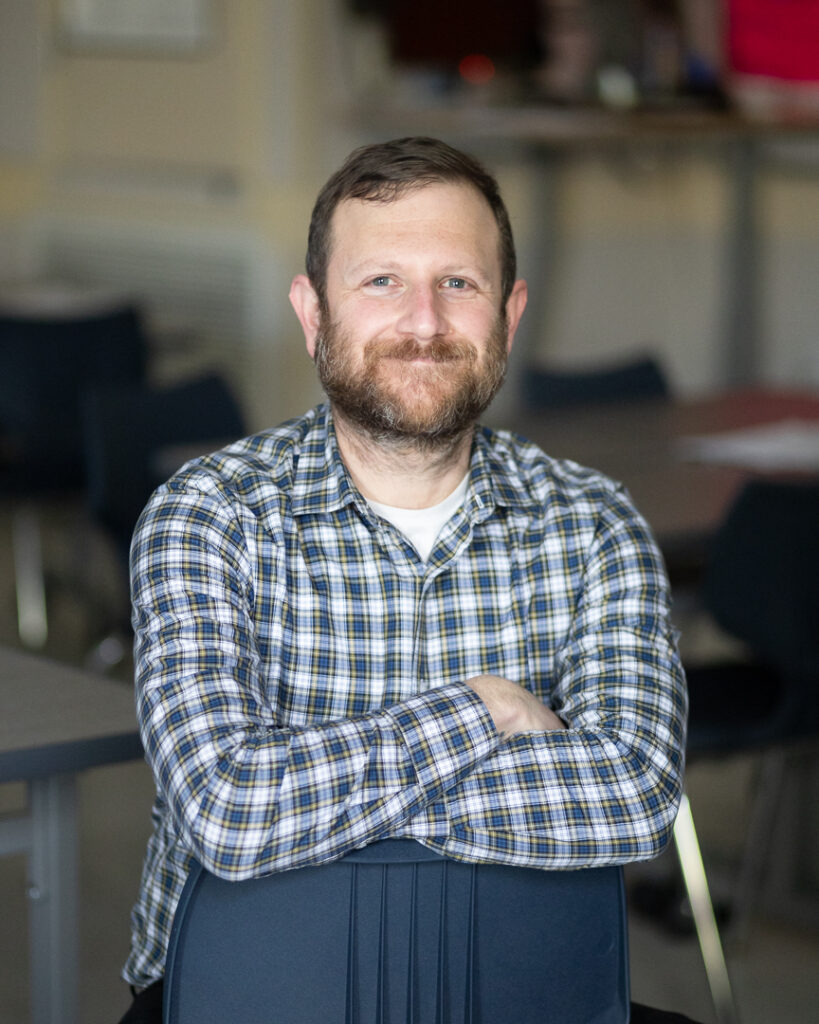
I don’t remember feeling very empowered by my teachers growing up. It was very much the classic ‘teacher fills you with information’ experience. That’s what I remember from high school. I don’t have any particularly deep memories of any great teachers I had.
That’s one of the reasons I moved toward being a teacher; I wanted to be the type of teacher someone could confide in or get encouragement from to push them forward. I never really felt like I had that. It’s cool to take on that role for students. There’s so much inherent value in the work. I was attracted to the idea of forging my own path while building that value in myself.
There is a sense of performance in teaching, too. There’s a huge overlap between teaching and performing on stage — there’s a sense of creativity. If that 90-minute class is a show, how do I keep the kids engaged? How do I keep the crowd engaged? There’s creativity in discovering ways to keep their attention.
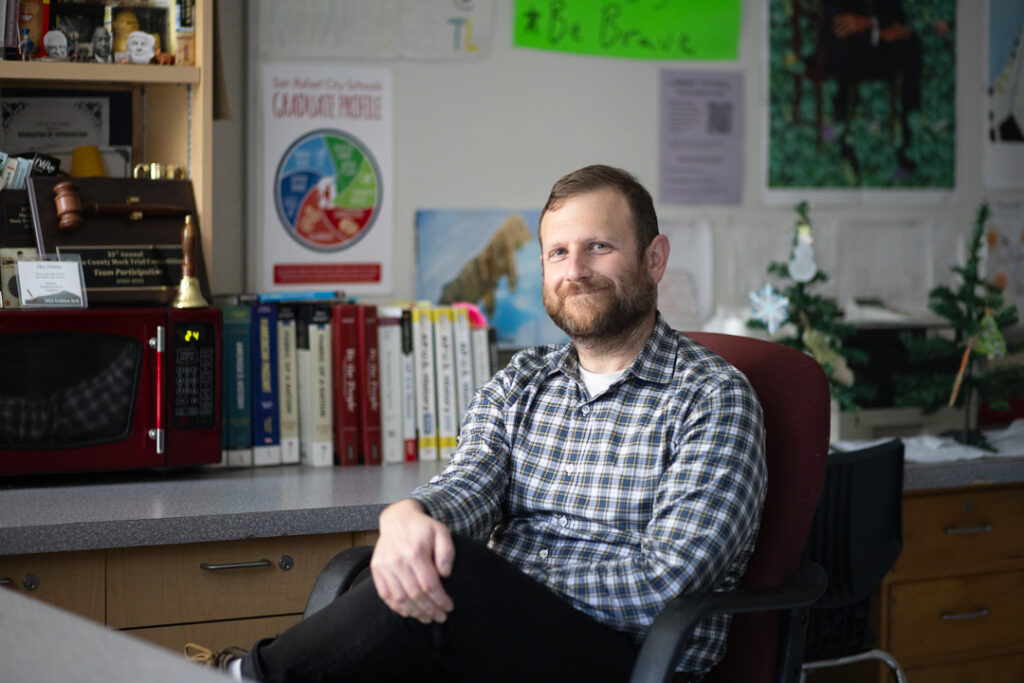
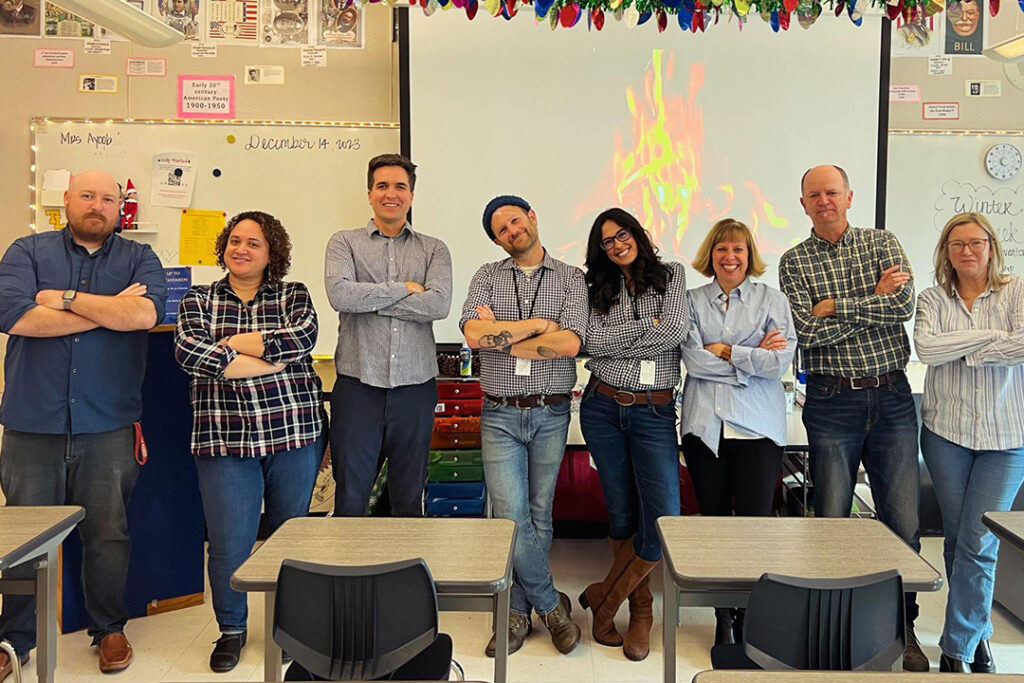
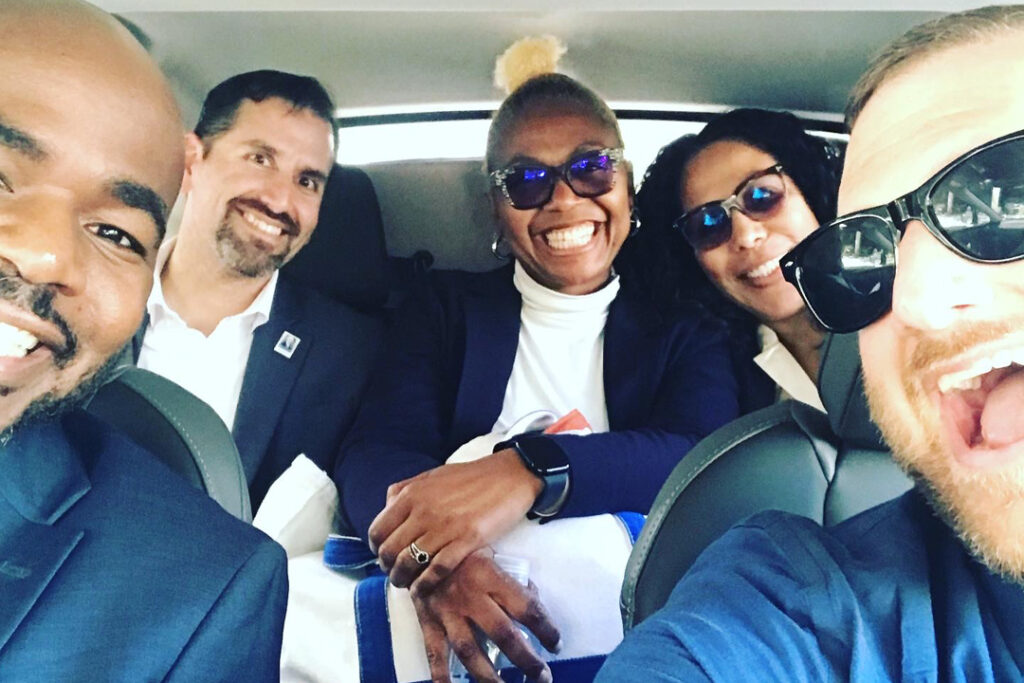
I always found music incredibly inspiring. But it got to the point where the stressors of performing didn’t balance out the fun and the creativity.
Trying to create a living out of my art was about accepting the terms that had been laid upon me: if I didn’t make a lot of money doing it, I wasn’t successful. There’s a way that you can hyperfocus on both extremes: you can care too much about the money or too little about it… it’s also easy to say, ‘I wish I had kept going.’
But everything that I enjoyed about playing music and being in a band, I’ve tried to recreate in class. I don’t really miss a lot of the behind-the-scenes things about it. It’s more exciting when you’re younger. It wasn’t about giving it up. It was about finding a different way to make myself happy. For me, teaching is a way to stay in connection with that spirit.
Teaching is just like a show: every performance is different, you always wish something could have gone better. But every day is a new opportunity to shine, I just try to reset and move forward. The job helps me focus on this part of myself. This is a new chapter.
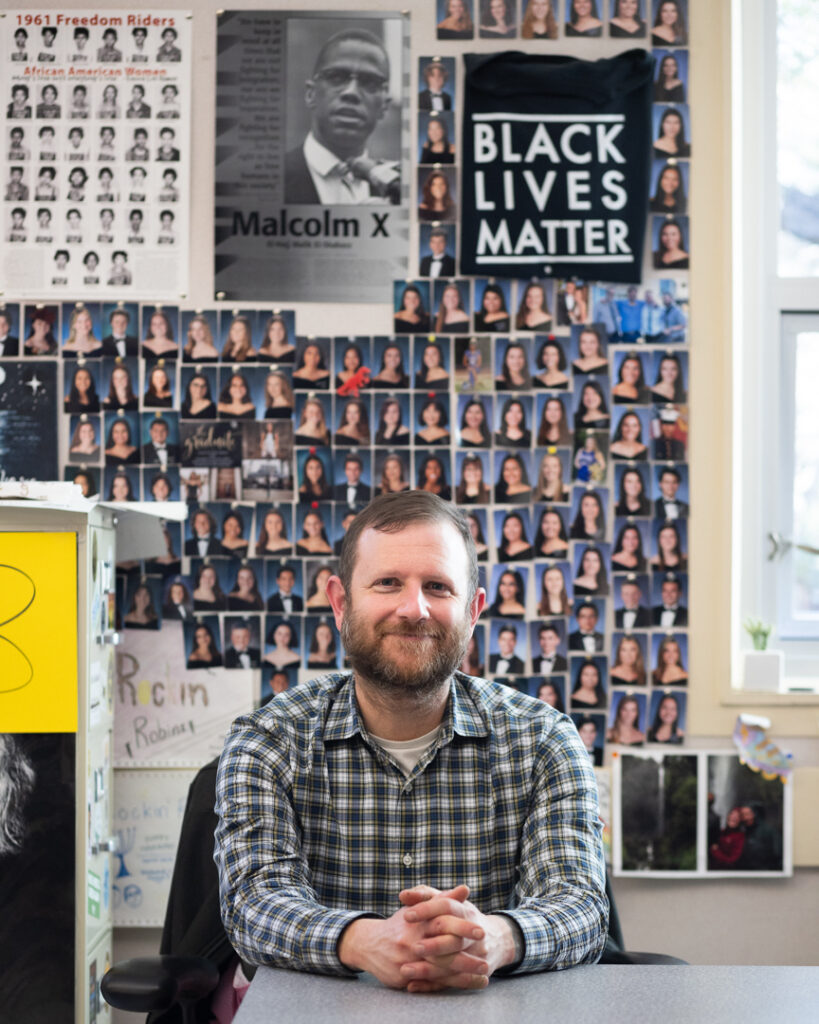
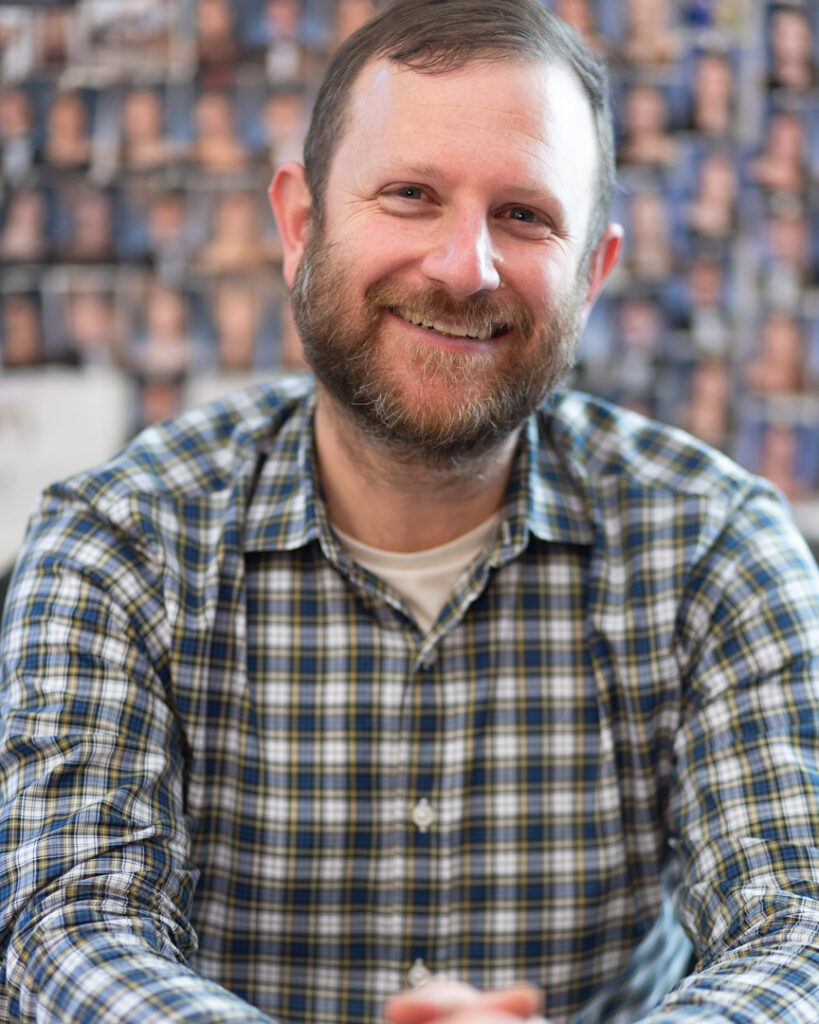
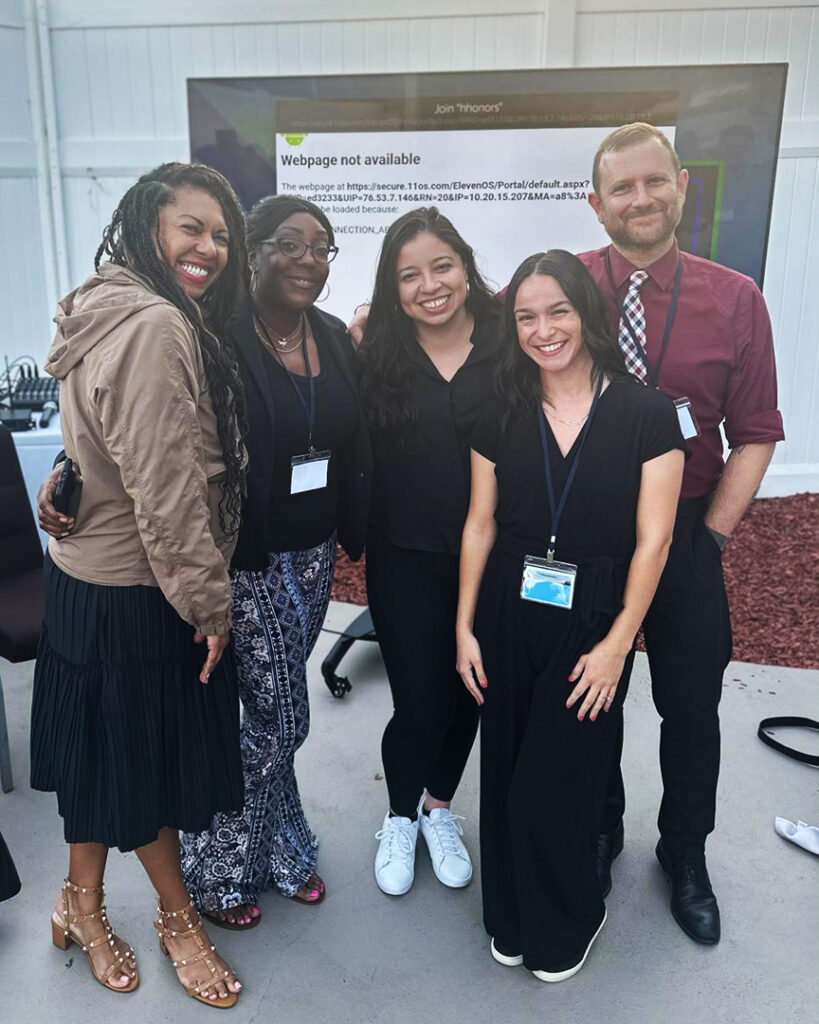
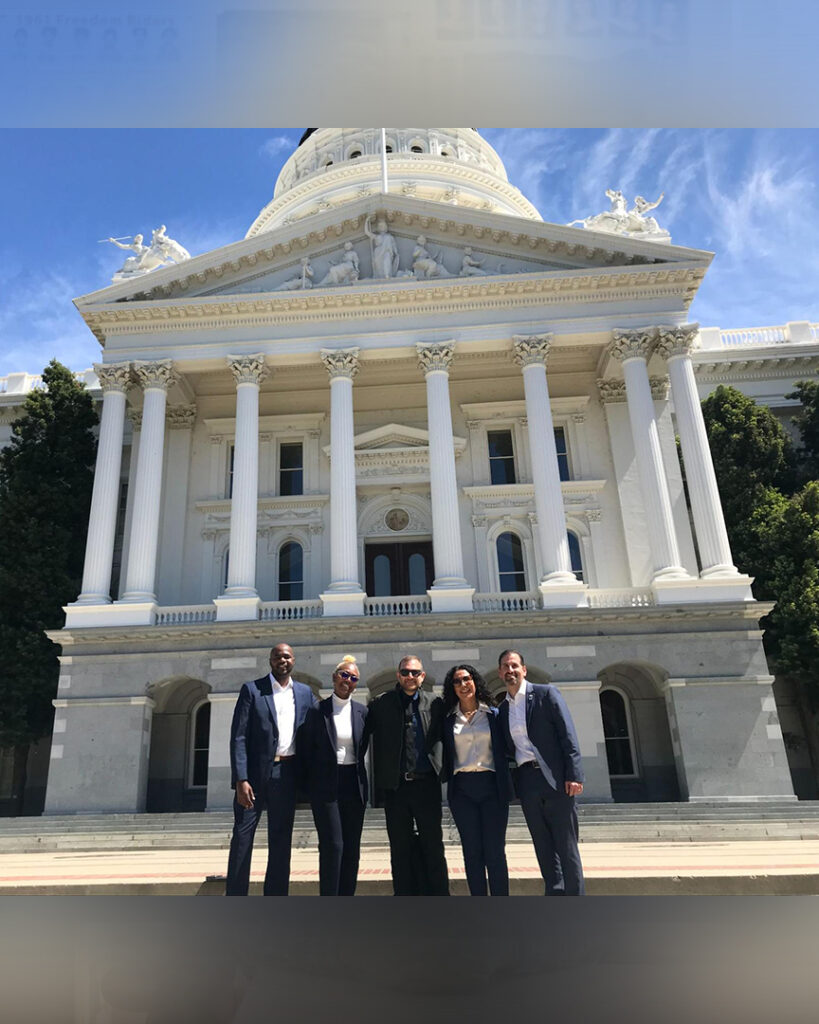
As a white kid from an upper middle class family, it was easy for me to attend college, enjoy my twenties, and then fall back on my degree. I now recognize what a privileged place I came from and how much my surroundings impacted my interactions with the world. It’s important to understand that the vast majority of people don’t get that opportunity.
These days, I try to be transparent with my students about my experiences. I was able to play music and wait tables because I had a safety net to fall back on. The invisible system underneath us is pushing and pulling in different directions. For me, becoming a teacher was a way to pump the brakes a little bit. It was a way to remind myself that there’s more I can do for myself and for the community.
The teachers I know who taught right out of college sometimes struggle to see what else they can do outside of education. My experiences before becoming a teacher have really helped me see the impact of the work we do and how much value it adds to the world.
Good teachers can positively impact this generation of kids. We need diverse, young teachers to be supported and encouraged so that our students can see themselves represented in their classrooms. We need to pass policies to protect them, pay them, and retain their expertise.
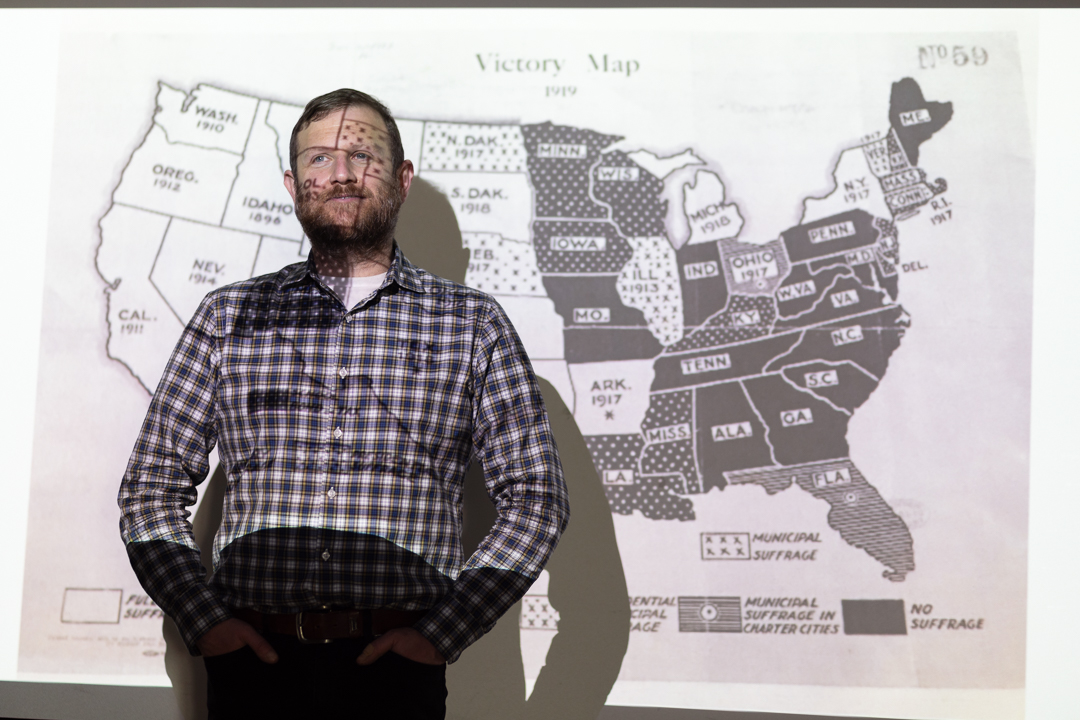
The things that get me most pumped about the work, especially as a social studies teacher, are the moments we’re connecting, debating, or discussing topics within the context of history.
As teachers, I think we need to gather all the biases we can uncover, and then let the kids make up their own minds. I will try to make it clear that we’re not equivocating all viewpoints — if you’re going to be racist, sexist, misogynistic, or homophobic, that’s not acceptable. But do we think that healthcare is something the government should pay for? That’s completely on the table. Students ultimately end up having lots of different opinions and valuing different things. That’s the point of our class.
I really enjoy Socratic seminars, where the students can take research they’ve done and make arguments. My goal is to help these kids educate themselves by looking at different perspectives.
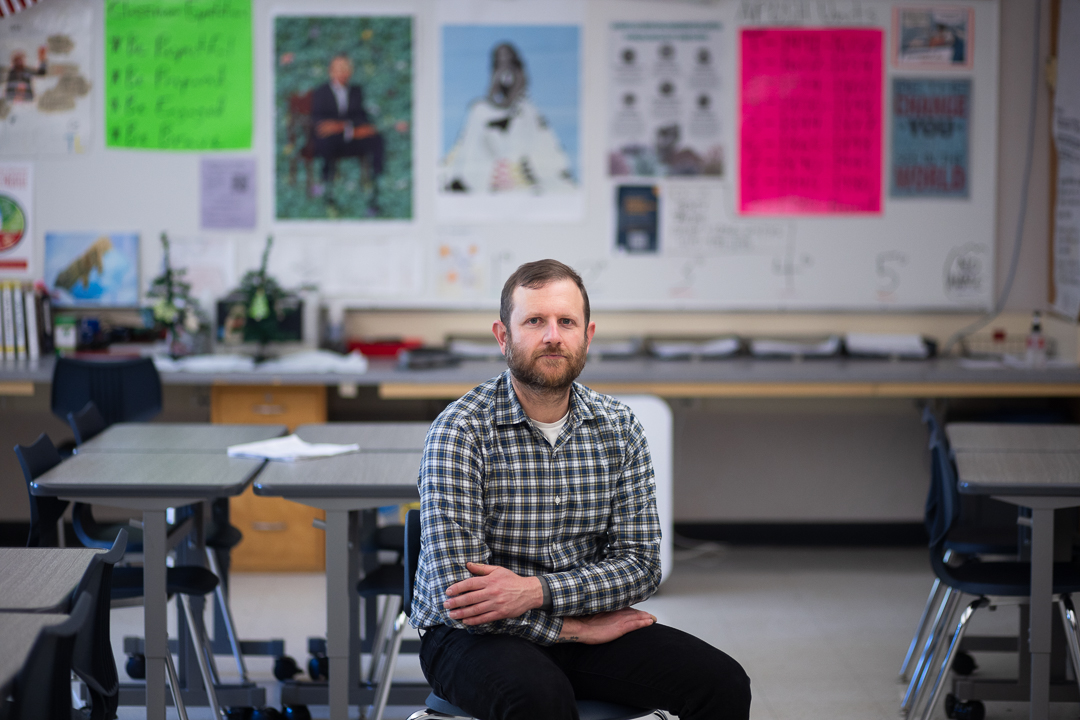
It is so important to have an understanding of our country, its history, and how it was built. To me, conversations around hard topics are the most fascinating and interesting. I love discussions concerning Reconstruction after the Civil War, and watching kids argue about whether or not it was successful. Or when a student recognizes the loophole written into the 13th Amendment, targeting African Americans for Jim Crow laws. Those small moments of academic illumination. I’ve had students from other classes come by to take part in these conversations. Once, the fire alarm went off in the middle of a debate and the students asked me, ‘Do we have to go?’ ‘Yes, but we’ll pick it up when we get back!’
There are so many things the kids want to talk about and want to understand. Adults, parents, and society don’t always see that in this generation. I feel lucky to have that insight.
There are larger conversations about education and school boards and teachers happening in the country right now. I feel very lucky in my community and with my administration that I’m given a lot of trust.
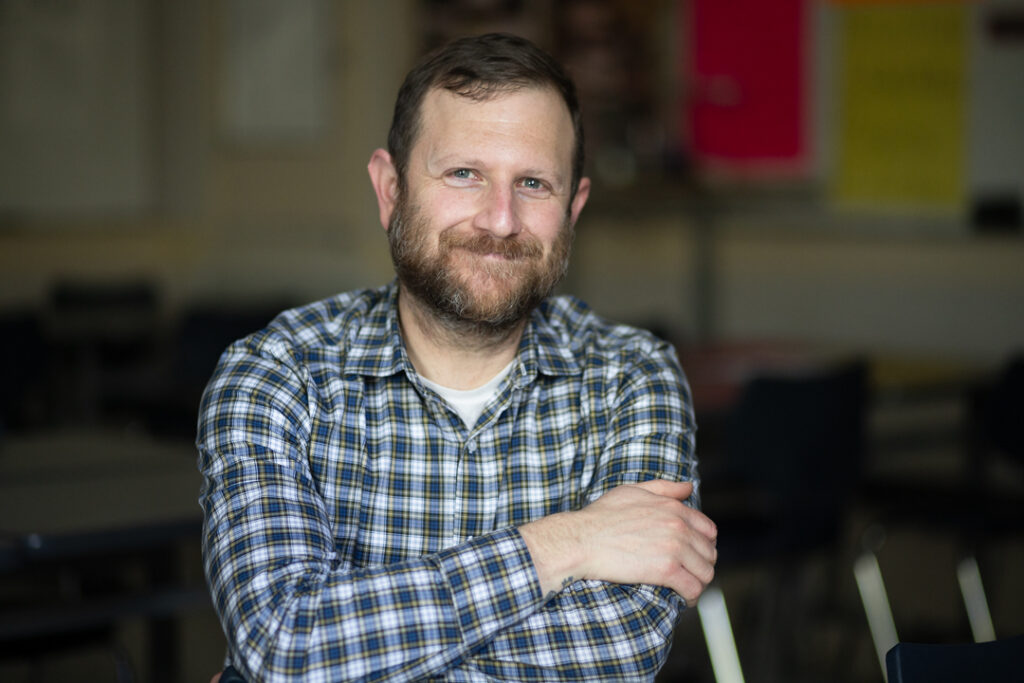
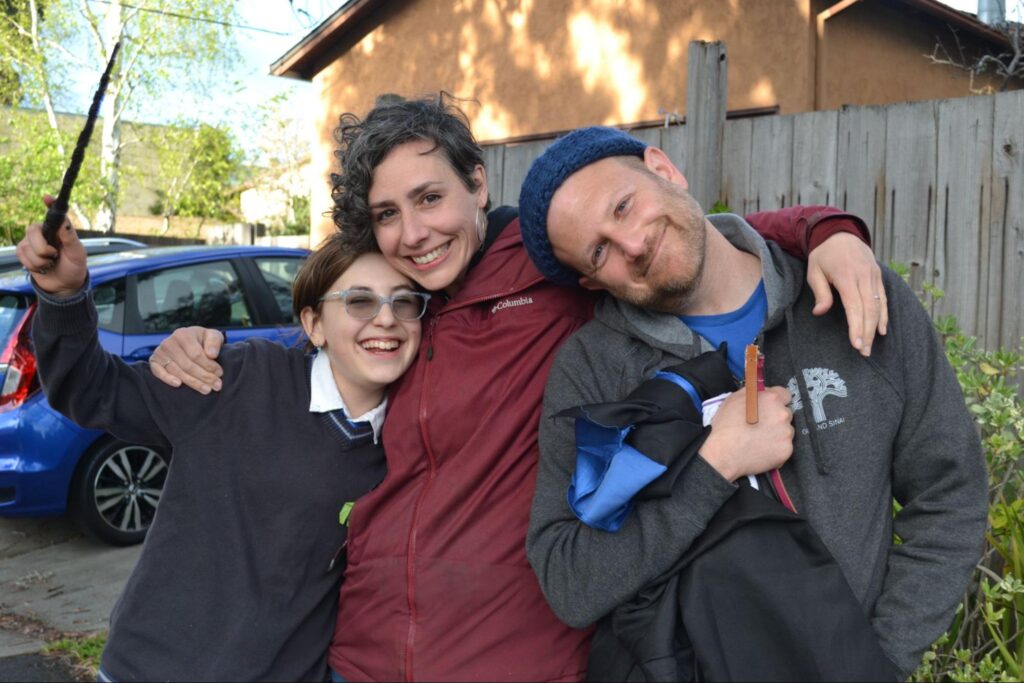
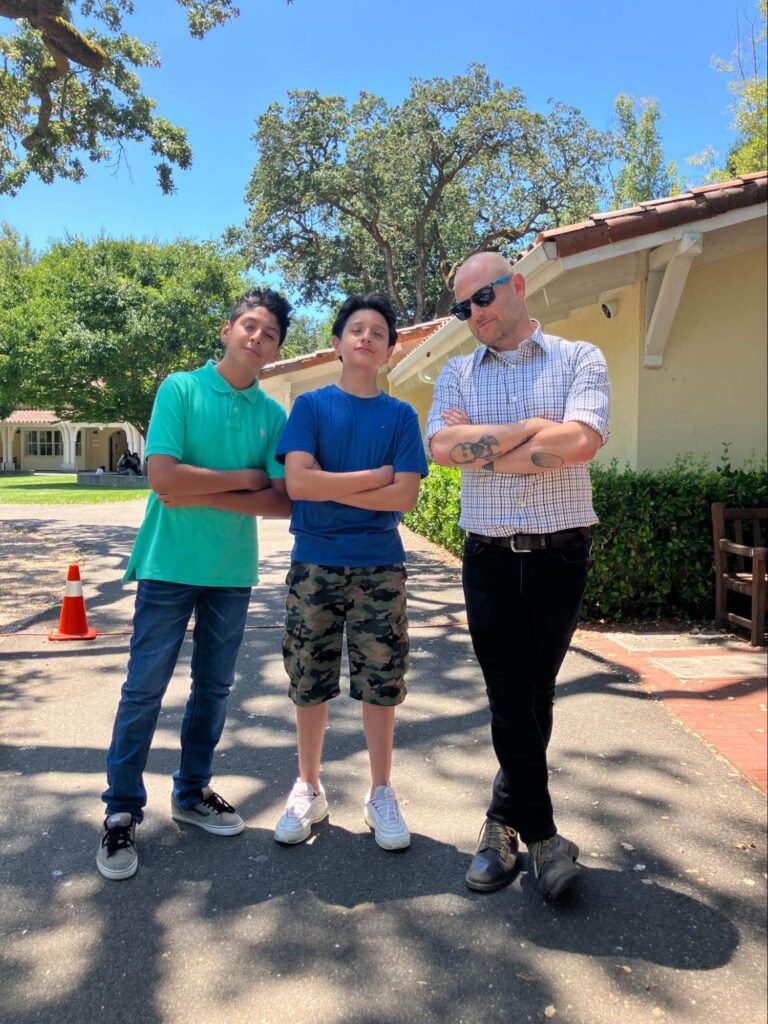
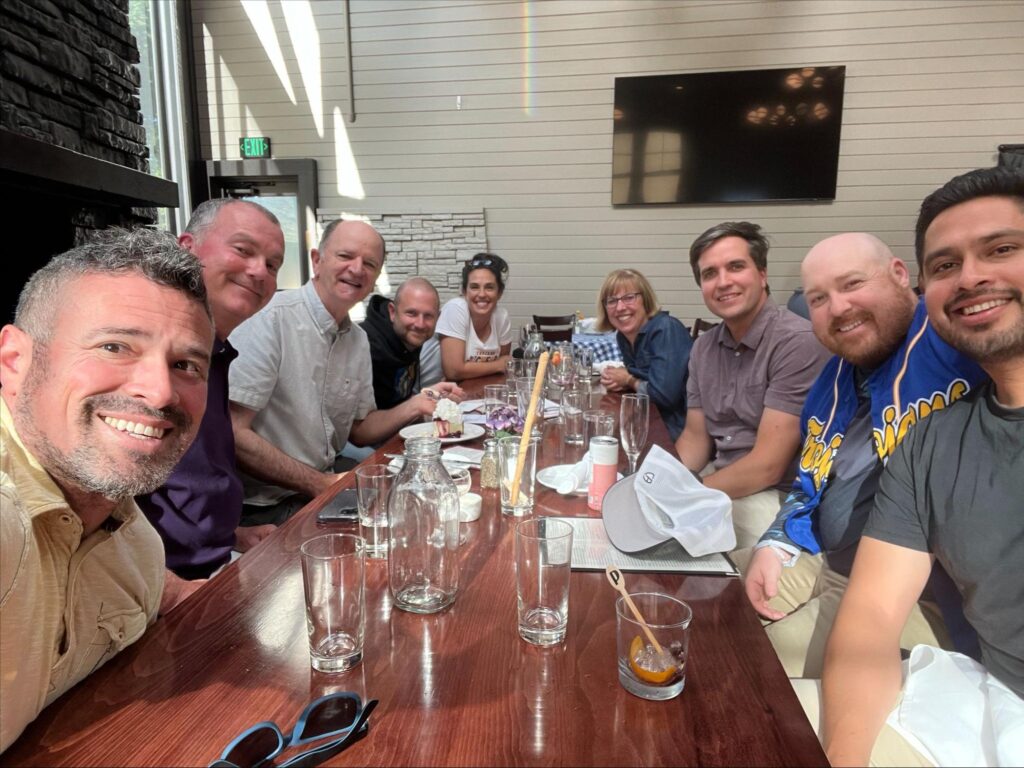
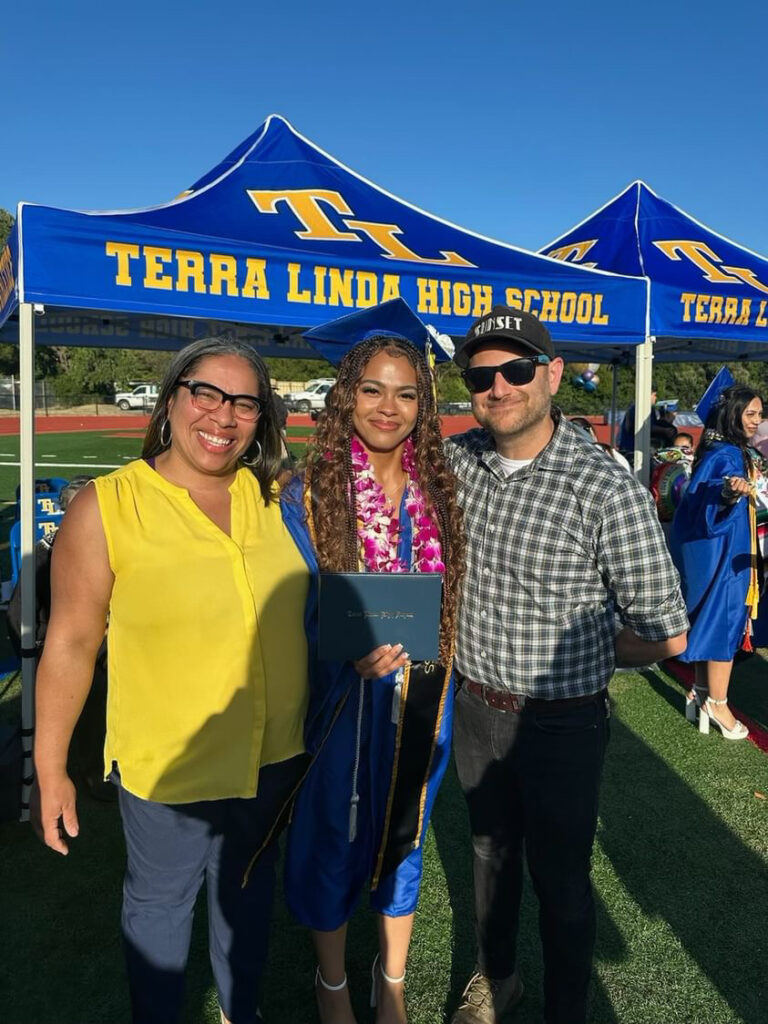
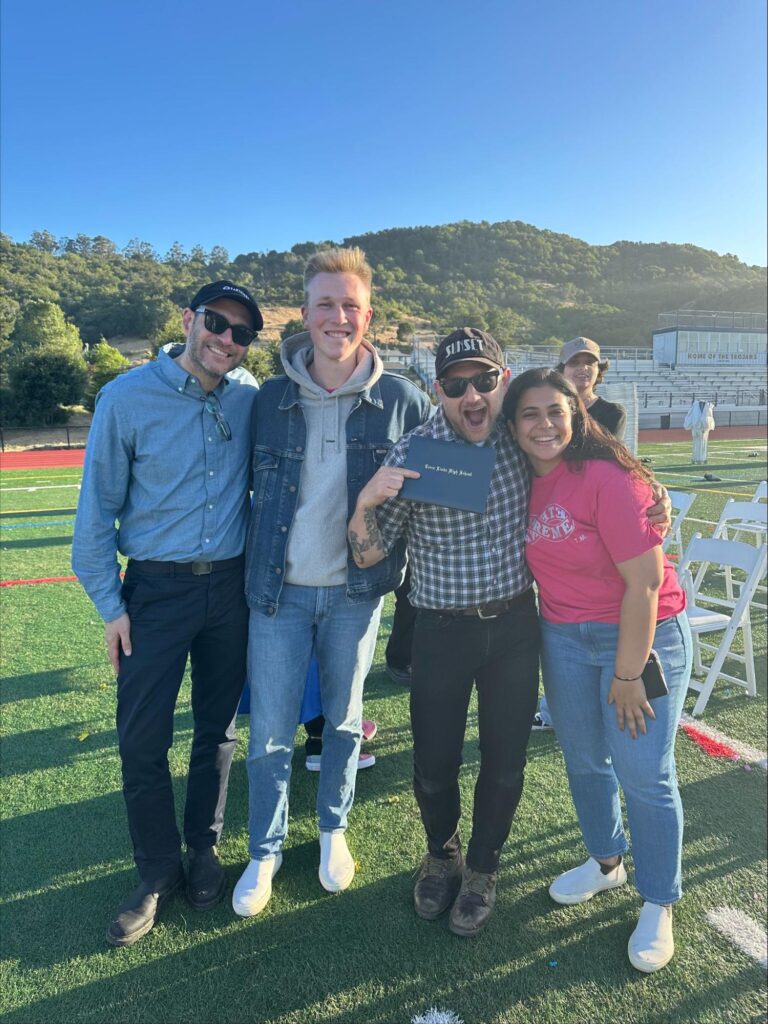
I’ve never really thought about leaving the profession. I’ve only been in this for a decade and I still feel like I’m pretty new. There have been teachers in the last couple years who have left because of the burnout. But I think one thing that keeps teachers in it is the kids. As a high school teacher, the relationships that we create with our students are incredibly valuable. And the pandemic opened a lot of families’ eyes to how valuable school actually is, not just as a place for obtaining information and learning, but as a safe place to build relationships and find connections.
I think people see elementary school teachers as one thing, middle and high school teachers as another, and college professors as something totally different. Those perceptions at each level don’t really tell the larger story.
People aren’t always interested in knowing what it is we’re doing, or how much time and effort it takes to do it. If you’re an effective teacher, you should be changing up your lesson plans, you should be thinking about how something hits or doesn’t hit, you should be taking time to reach out to parents, other teachers, and students.
I have a family, and my daughter and wife are my greatest priorities. But my students are also a big part of my world. I have to balance those things. I definitely don’t succeed all the time. But I keep trying.
It’s a lot of off-the-clock work. There are many things that are not technically in our contract that teachers don’t have to do: grading and lesson planning at home, writing letters of recommendation, opening our classrooms at lunch or after school for students. But to me, that’s a huge part of being a teacher: I am not just filling kids with information, I am creating a space and community.
–Alex Robins
History Teacher at Terra Linda High School
2022-23 Teach Plus Policy Fellow
San Rafael, CA
